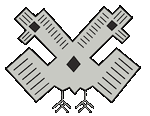Salcajá,
Quetzaltenango, Guatemala
Much of the jaspe or ikat dying and weaving of Guatemala is carried out either in Salcajá or in nearby Totonicapán. The process is intricate and time consuming, but the results are stunning
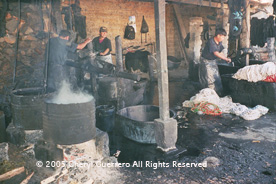
At a dye workshop in Salcajá, workers stoke the fires and submerge bundles of tied thread that will be used later in jaspe or ikat weaving. Photo by Cheryl Guerrero 2005.
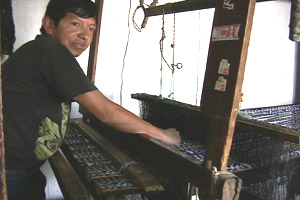
Carlos Edwin de Leon Soto owns a jaspe or ikat workshop in Salcajá. Two huge looms are kept busy weaving the jaspe or double jaspe textile favored by Maya women for skirts. Photo by Kathleen Mossman Vitale 2004.
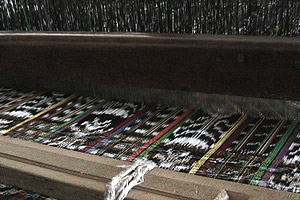
Carlos is weaving a double jaspe or ikat pattern in which both warp and weft have been tied and dyed prior to use on the loom. Photo by Kathleen Mossman Vitale 2004.
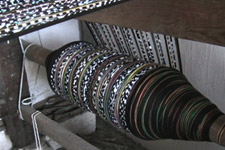
A huge roll of warp threads is at the ready at the far end of the huge floor loom Carlos uses. Carlos learned weaving from his own father. Photo by Kathleen Mossman Vitale 2004.
